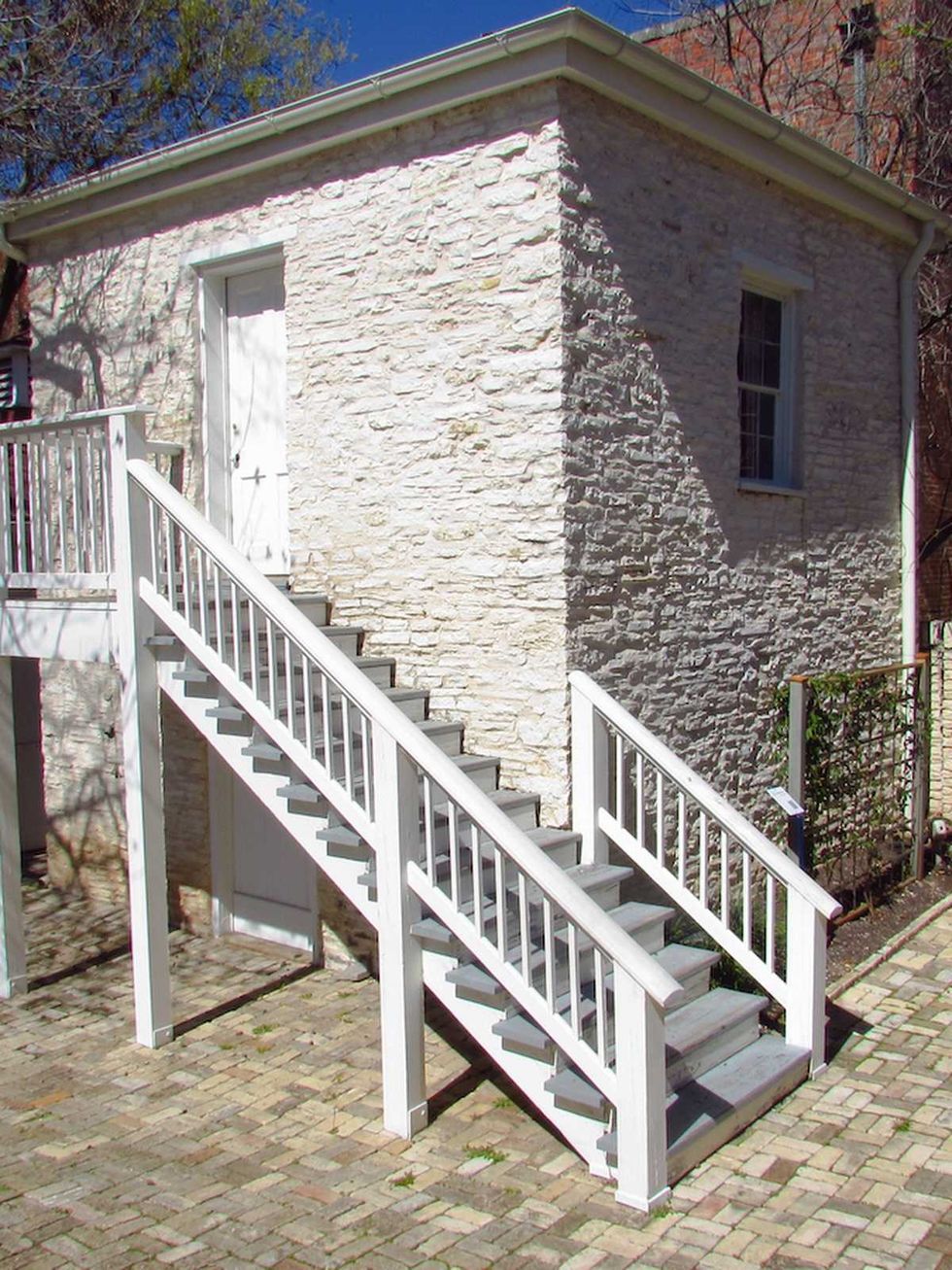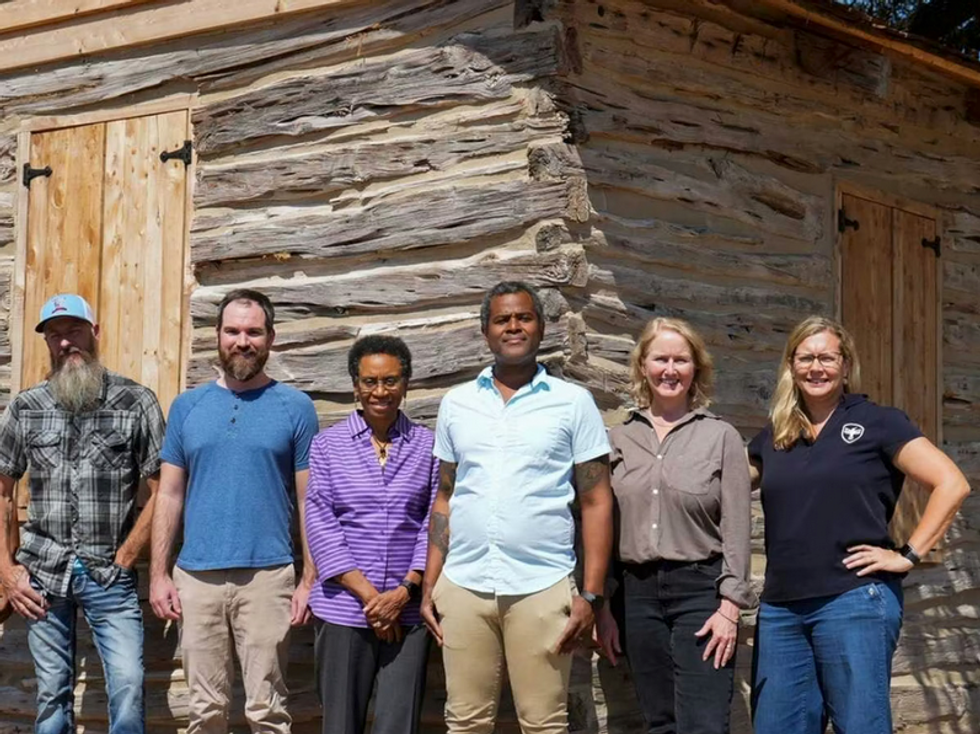Texas Book Festival
Winter's Bone author Daniel Woodrell on the music of Southern fiction
Oct 22, 2011 | 11:15 am
Daniel Woodrell is the author of eight novels and the recently released short story collection The Outlaw Album. After dropping out of high school at the age of seventeen to join the Marines, he worked dozens of jobs while gradually attaining a degree, entering the prestigious Iowa Writer's workshop as a graduate student at the age of twenty-seven.
Riding the critical acclaim of novels like Give Us A Kiss, The Death of Sweet Mister and Winter's Bone (adapted into a Best-Picture-nominated film), he's set the majority of his work in the harsh but proudly unique Ozark region where he grew up, with the crime, language, and deep family roots of the region greatly informing each novel.
We spoke with Daniel Woodrell before his appearance Sunday at the Texas Book Festival about being pigeonholed by a term that he invented, the appeal of fiction writing, and his long path to literary success.
---
Obviously you've become known for the Venus Holler novels, set in the contemporary Ozarks, but I really enjoyed the Civil War era novel Woe To Live On. Do you have any other plans to write something historical?
I've thought about it from time to time but I really have begun to do that yet. I'm in the middle of a novel now that largely takes place in the 20s and 30s, and there are civil war aspects I've pondered, but I just haven't quite gotten around to being properly motivated.
Do you worry about being perceived as sort of working within a certain genre exclusively, though? You coined the term 'country noir' and the critics have really made it stick.
I did coin the term some time ago, but I don't actually use it. Other people keep it alive for me. I don't worry about it, but it does seem inevitable. With my recent books I always ask "Well what genre is it, and who else is in it?" When I'm in the South they often say "What's the difference between what you do and just Southern fiction?" and I say "well, you tell me." Because for me the last four or five books can just as easily be called Soutern fiction, I guess, or even just fiction. But these are things that a writer can't do too much about. I don't throw my hat at anybody that calls me something I don't like in terms of labeling.
Do you read a lot of your own reviews, or is that also not something you worry about?
My people keep me appraised of how they're going, but I don't scrutinize them too intensely or anything. Some of them I know better than to do.
Certain elements in the literary community almost seem surprised—"you can write novels about meth, too?" But good fiction can be written about anything.
That's the way I take it. I've never thought of myself as being confined to just one kind of music. If something else appeals to me strongly enough, then I give myself permission to pursure. Yes, I'm a banjo player, but I might want to do something in jazz one of these days, you never know.
There's also a strong element of humor in your work that the whole "country noir" term doesn't encompass very well.
I always think about the people, not the events. I like a beat you can dance to, so there's always a plot, but I've never written a book where the crime was more important than the character, or anything like that. It's always the people first, and whatever they get up to is whatever they get up to. I was weaned on Twain and stuff, so it just seems natural to me that even a dark story will have moments of humor in it. Certainly life will do that to you sometimes. I wouldn't want to be specific, but I've been in ICU waiting rooms before where we couldn't stop laughing. I don't know what happened, but it happened! We deeply cared about the person who was sick, but something happens and you find yourself laughing.
Your style is very stripped down, bare-bones as it were. When you read for pleasure yourself, do you gravitate to a similar style or go for more ornate prose?
I kind of wander around a good deal. There are a lot of writers around over the last 25 years that are referred to as 'stripped-down,' all the way from Amy Hempel and Raymond Carver on. I like reading all of those, but I don't go specifically looking for them. I really like the kind of musical language that you do find in certain southern writers, Barry Hannah, James Agee or Willman Goyen of Texas, another guy who's deeply lyrical. And I find the Irish writers also provide that in abundance, so I've always read a lot of Irish fiction and poetry.
What's been your experience with Woe To Live On and Winter's Bone being optioned for films? Did you collaborate in that process at all, or basically just trust them to see it through and stick to writing books?
Basically the latter. The Ang Lee film of Woe To Live On [Ride With The Devil], they were very nice to me and I spent a fair amount of time on set and all that, but I didn't offer any advice or anything. James Schamus, who wrote the screenplay, showed it to me and I liked it—and he seemed open to it if I had had suggestions, but I really stay out of that.
And the same thing with Winter's Bone—we met before the film, but once they began to write their adaptation I really didn't offer my opinion on anything much. I know that's not really helpful to the filmmakers. That Ellroy quote, "my book, your movie"—I try to be that way. I hope their movie will include my book, which both of them did. They treated my work very nicely, so I've had two good experiences.
So you're not tempted to do any screenwriting yourself, then?
I've been approached a few times but I haven't done it, mostly because I wasn't sure about about trying to adapt my own work. I've had a lot of people from that business tell me that with certain of my books they felt they could practically just open it and start shooting, because my vision tends to have a lot of cinematic or visual qualities to it.
And I really am a fiction guy, I really enjoy writing fiction. It's a long process and I've been at it a long time, and I think I'm now at the point where I might be able to do some of the things I've long dreamed of doing. You need that experience and the growth that comes from applying yourself steadily to something that you've always wanted to do. I know that the glamor of film and all that's appealing, the buckets of money, nobody wants to say no to that. But I really like writing fiction and I'm really not a committee-oriented sort of guy, a collaboration guy. I'm not sure how that would ever work with me involved.
You've just released your first short story collection, The Outlaw Album. What dictates whether something becomes a short or a novel? Is it something you plan before writing?
Sometimes I recognize that it's a short story right off the bat. Two of these were stories that I thought at one point I might pump them full of growth hormones and turn them into novels, but I realized that the short format got at what I wanted to get at, so I didn't. The only short story that's turned into a novel so far was Woe To Live On.
Your career path has been long and circuitous, even for a novelist. What kept you writing for the years before you made a living at it?
Well, I like doing it. I wrote for ten years before I sold anything, and I wrote almost everyday. I guess on the interior I must have had some optimism that it would ultimately go somewhere, but really there weren't that many great signs that it was going to go anywhere. Some people are emotionally ready to do superior work young, and some people have to develop through the battles, and I'm the latter.

 The Neill-Cochran House Museum's mid-19th-century slave quarters received Planning and Historic Designation grant support for restoration and historical interpretation.Photo courtesy of Preservation Austin
The Neill-Cochran House Museum's mid-19th-century slave quarters received Planning and Historic Designation grant support for restoration and historical interpretation.Photo courtesy of Preservation Austin Built around 1863, the Henry G. Madison cabin in Rosewood Park received Bricks and Mortar grant support for preservation planning work.Photo courtesy of Preservation Austin
Built around 1863, the Henry G. Madison cabin in Rosewood Park received Bricks and Mortar grant support for preservation planning work.Photo courtesy of Preservation Austin